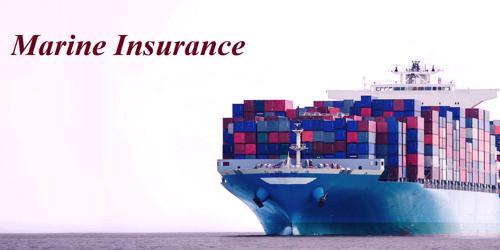Marine Insurance covers the loss or damage of ships, cargo, terminals, and any transport or cargo by which property is transferred, acquired, or held between the points of origin and final destination. This insurance covers the loss or damage of ships, cargo, terminals, and any transport or cargo by which the property is transferred, acquired, or held between the points of origin and the final destination.
Classification of Marine losses –
Marine losses may be divided into the following categories:
(A) Total Loss: Total loss is divided into two categories:
(1) Actual Total Loss: Actual total loss occurs under these following situations:
(a) The subject-matter is completely destroyed.
(b) The goods are so damaged that they cease to be a thing of the kind which was insured.
(c) The insured is deprived of the subject-matter.
When a ship is sunk or is completely destroyed by fire, it will be a case of actual total loss. There may be a case when the goods are so damaged that they do not look like goods which were insured e.g. if crockery is reduced to pieces, it is a case of actual total loss.
In another case, if the insured is not able to get the things back i.e. if the ship is missing and there is no trace of it, it is also a case of actual total loss. In the case of actual total loss, the insured is entitled to recover the full amount of loss. When the insured has been compensated the title of goods, passes on to the insurer. If some amount is received from the sale of damaged goods, the amount will go to the insurer and not to the insured.
(2) Constructive Total Loss: This occurs when the ship is abandoned for certain reasons. It is not commercially viable to retrieve the ship or cargo. The ship or the cargo is not wholly destroyed but it is not practicable to get it repaired and restore it to its original position. When a ship is badly damaged, and the cost of repairs is expected to be more than the value of the ship, it will be advisable to abandon the ship.
In the same way, if cargo is safe in the abandoned ship but the cost of bringing the cargo to, the coast is more than the cost of cargo, then it will be proper to leave the cargo. In the case of constructive total loss, the insured gives a notice of abandonment and surrenders its interest in the subject-matter to the insurer. The insured can claim damage for a total loss.
(B) Partial Loss: When the subject-matter is partially damaged, it will be a case of partial loss. It is of two types:
(1) Particular Average Loss: A particular average loss has been defined as, “a partial loss of subject-matter insured, caused by a peril insured against, and which is not a general average loss.” A particular average loss is not caused voluntarily. The insured subject-matter should be damaged and this damage should be ’caused by marine peril which is insured.
(2) General Average Loss: A general average loss is caused voluntarily to avoid an impending danger. “A general average loss is one which is caused by an extraordinary sacrifice or expenditure voluntarily and reasonably made or incurred under fortuitous circumstances, for the sole purpose of preserving the common interest from an impending peril”.
If a ship is sinking because of overload, some of the cargo may be thrown out of the ship with a purpose to save the ship and the crew. It will be a case of general average loss. Some conditions are to be satisfied before deciding about a general average loss:
(a) There must be an extraordinary situation.
(b) The peril must be real and not imaginary.
(c) The loss must be voluntary and deliberate.
(d) The sacrifice must be made prudently.
(e) The purpose should be to save the whole adventure.
(f) The act should be successful At least partially.















